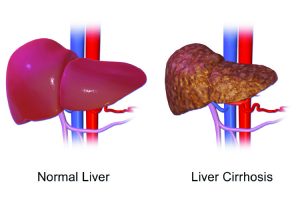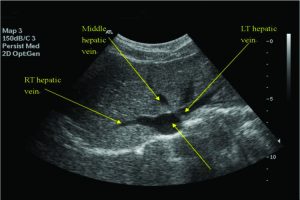Hepatitis simply means “inflammation of the liver” (the suffix “itis” means inflammation and “hepa” means liver).
Hepatitis B is a specific type of hepatitis that is caused by a virus. There are many other hepatitis viruses such Hepatitis A, Hepatitis C, Hepatitis D, Hepatitis E etc. They are all different viruses and the only thing they have in common is that they all affect the liver.
It is estimated that there are more than 300 million carriers of the hepatitis B virus in the world, with over 500,000 dying annually from hepatitis B-related liver disease. In Malaysia, about 5% of the population is affected by hepatitis B. This rate is highest among the Chinese.
Fortunately, treatments for chronic hepatitis B are available, and many new treatments are in development. Vaccines can prevent hepatitis B infection, and are now given routinely to all newborns in Malaysia.
Table of Contents
How did I become infected with Hepatitis B?
There are several ways one becomes infected with the hepatitis B virus.
Mother to infant
Hepatitis B can be passed from a mother to her baby during or shortly after delivery. This is the most common route of transmission among Malaysians. Having a Cesarean delivery (also called a C-section) does not prevent the virus from spreading. Experts believe that breastfeeding is safe.
During pregnancy, all women should have a blood test for a marker of hepatitis B virus, called hepatitis B surface antigen (HBsAg).
All infants in Malaysia, regardless of the mother’s hepatitis B status, should also be given another shot soon after birth (called hepatitis B immunoglobulin or HBIG). HBIG temporarily helps to protect the infant from infection and reduces the rate of transmission. In some cases, the doctor may also give a medication that reduces the amount of virus in her blood for several weeks before giving birth. This also reduces further the rate of mother-infant transmission of hepatitis B.
Contaminated needles
Sharing contaminated needles and syringes for recreational drugs (dadah) usage will transmit the virus. Using contaminated needles for tattooing, acupuncture, and ear piercing can also spread the hepatitis B virus.
Sex
Sexual contact with someone who is infected is one of the most common ways to become infected with hepatitis B. If you are infected with hepatitis B, make sure your spouse or sex partner gets vaccinated.
Close contact
Hepatitis B can be spread through close personal contact. This could happen if blood or other bodily fluids get into tiny cracks or breaks in your skin or in your mouth or eyes. The virus can live for a long time away from the body, meaning that it can be spread by sharing household items like toothbrushes, or razors.
Blood transfusion and organ transplantation
Blood transfusion and organ transplantation are now uncommon ways for Hepatitis B to spread. Blood and organ donors are carefully screened for markers of Hepatitis infection.
Hepatitis B symptoms
In most cases, Hepatitis B causes no symptoms for many years. Not having symptoms does not necessarily mean that the infection is under control. Everyone with chronic Hepatitis B is at increased risk of developing complications, including liver scarring (called cirrhosis when the scarring is severe) and liver cancer.
Acute Hepatitis B
After a person is first infected with Hepatitis B, they are said to have acute hepatitis. Most people with acute hepatitis B recover uneventfully. However, in about 5 percent of adults (1 in 20) the virus makes itself at home in the liver, where it continues to make copies of itself for many years. People who continue to harbour the virus are referred to as “carriers”. If liver damage develops because of longstanding infection, the person is said to have chronic hepatitis.
Chronic Hepatitis B
Chronic Hepatitis B develops more commonly in people who are infected with the virus at an early age (often at birth). Unfortunately, this is very common in Malaysia. Many people with chronic Hepatitis B have no symptoms at all; other people have symptoms of ongoing liver inflammation, such as fatigue and loss of appetite.
Hepatitis B cirrhosis

- Jaundice (yellow discolouration of the skin and white of the eyes)
- Ascites (distended abdomen due to accumulated fluid)
- Encephalopathy (confusion)
- Bleeding from the oesophagus and stomach (manifested by vomiting blood or passing black faeces).
Hepatitis B diagnosis
Hepatitis B can be diagnosed by a blood test-the commonest one being the HBsAg test.
Will I develop chronic Hepatitis B?

The risk of developing complications of chronic Hepatitis B depends on how rapidly the virus multiplies and how well your immune system controls the infection. Drinking alcohol, having chronic hepatitis C or fatty liver in addition to Hepatitis B increases the chance of complications.
Hepatitis B treatment
In people who develop chronic Hepatitis, an antiviral medication might be recommended to reduce or reverse liver damage and to prevent long-term complications of Hepatitis B.
Antiviral therapy
Several antiviral medicines are available to treat Hepatitis B. Not all people with Hepatitis B need immediate treatment. If you do not start treatment immediately, you will be monitored over time to know when Hepatitis becomes more active (meaning that antiviral treatment should begin).
Among them are oral once daily drugs such as entecavir, tenofovir, telbivudine lamivudine and adefovir, and subcutaneous (injection into the skin) weekly pegylated interferon. The doctor will discuss with you these different medications, their pros and cons and their respective cost and duration.
Once you start treatment, you will have regular monitoring to see how well the treatment is working, monitor for side effects or drug resistance, and monitor for signs that the infections has come back after fi nishing treatment.
Tips to maintain liver health
Those who develop chronic infection should see a doctor with expertise in liver disease (usually a gastroenterologist or hepatologist) who can discuss treatment options.
- Vaccinations – Everyone with chronic Hepatitis B should be vaccinated against Hepatitis A unless they are known to be immune.
- Liver cancer screening – Regular screening for liver cancer is also recommended for everyone with chronic Hepatitis B, particularly for older individuals, those with cirrhosis, and patients with a family history of liver cancer. In general, this includes an ultrasound examination of the liver and a blood test (alpha-feto protein of AFP) every six months.
- Diet – No specific diet has been shown to improve the outcome in people with Hepatitis B. The best advice is to eat a normal healthy and balanced diet.
- Alcohol – Alcohol should be avoided since it can worsen liver damage. All types of alcoholic beverages can be harmful to the liver. People with Hepatitis B can develop liver complications even with small amounts of alcohol.
- Exercise – Exercise is good for overall health and is encouraged, but it has no effect on the Hepatitis B virus.
- Prescription and nonprescription drugs – Many medications are broken down by the liver. Thus, it is always best to check with a healthcare provider or pharmacist before starting a new medication. As a general rule, unless the liver is already scarred, most drugs are safe for people with Hepatitis B. An important possible exception is paracetamol; the maximum recommended dose in people with liver disease is no more than 2 grams (2000 mg) in 24 hours.
- Herbal medications – No herbal treatment has been proven to improve outcomes in patients with Hepatitis B, and some can cause serious liver toxicity. Herbal or vitamin treatments are not recommended for anyone with Hepatitis B.
Prevent infection of family

- Discuss the infection with any sexual partners and use a latex condom with every sexual encounter
- Do not share razors, toothbrushes, or anything that has blood on it.
- Cover open sores and cuts with a bandage.
- Do not donate blood, body organs, other tissues, or sperm.
- Immediate family and household members should be tested for Hepatitis B. Anyone who is at risk of Hepatitis B infection should be vaccinated.
- Do not share any injection drug equipment (needles, syringes).
- Clean blood spills with a mixture of 1 part household bleach to 9 parts water.
Hepatitis B cannot be spread by:
- Hugging or kissing
- Sharing eating utensils or cups
- Sneezing or coughing
- Breastfeeding




















